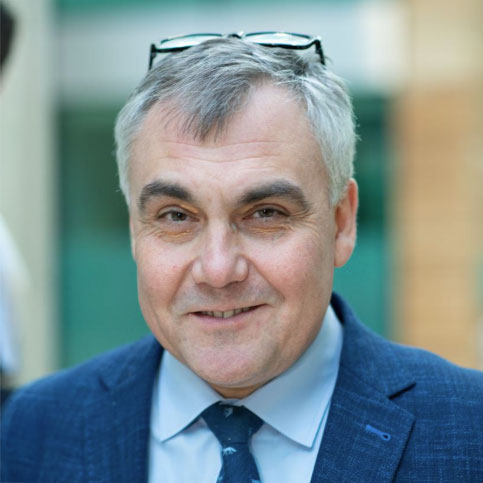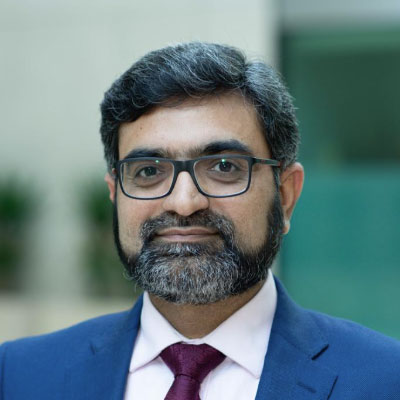
Prof. Oleg Ilyinski
Consultant in Pain Medicine, UCD Associate Clinical Professor

Dr. Wajid Khan
Consultant in Pain Medicine, UCD Assistant Clinical Professor
Millions of people worldwide unnecessarily suffer from untreated chronic pain, thought to affect around 20% of the global population. No one should have to suffer in silence.
Recognising the need for a dedicated specialist pain management, Prof Oleg Ilyinski started with a vision to provide effective evidence-based treatment. Through the years, he built a collaborative team: joining him are Prof Wajid Khan, and subsequently Dr Sven Sommer. The clinic now has a wide network of medical professionals dedicated to providing safe and effective pain management.
A clinic built on a shared vision
“A lot of patients suffer from chronic pain and don’t know the cause, what treatment options are available and where to get it,” says Prof Ilyinski. “The gap in access and continuity of care is what drove us to build a more collaborative, multidisciplinary service. We work closely with neurology, spinal surgery, rheumatology and other specialists whenever needed to facilitate the most appropriate management.”
Evidence-based pain management
The clinic sees a wide range of chronic conditions, from head and neck, back and facial pain to degenerative issues and fibromyalgia. Most patients are referred by their general practitioner or other specialists. “At the initial consultation, we build a relationship with the patient, set realistic expectations and start the pain management planning process,” says Prof Ilyinski. “We don’t just treat the pain; we address the person behind it,” adds Prof Khan.
We can’t promise a cure, but no one
should have to suffer in silence.
The clinic utilises clinically approved management options, including medications such as anaesthetic agents, steroids and botox; surgical interventions such as nerve blocks, pulse radiofrequency, neuromodulation with implantable devices; and regenerative medical techniques. These are done together with physiotherapy and psychology. “Each patient is met with a personalised approach, individualised to their specific needs,” continues Prof Khan.
Improving care and education
Ireland remains the only EU country to officially recognise pain medicine as a medical specialty. Despite this progress, challenges in pain management persist. Prof Ilyinski, Prof Khan and Dr Sommer aim to continue raising greater awareness and improving the education and management of chronic pain across Ireland.
“There’s a lack of education around pain, both in the medical community and the public,” says Prof Khan. Yet, using well-established, evidence-based treatments with proven results, the clinic is improving the quality of life of thousands of people living in Ireland, facilitating a much-needed resource for those living with chronic pain.
“We can’t promise a cure, but no one should have to suffer in silence,” concludes Prof Ilyinski. “There are always ways we can help.” With over 7,000 patients treated to date, feedback has been extremely positive.


